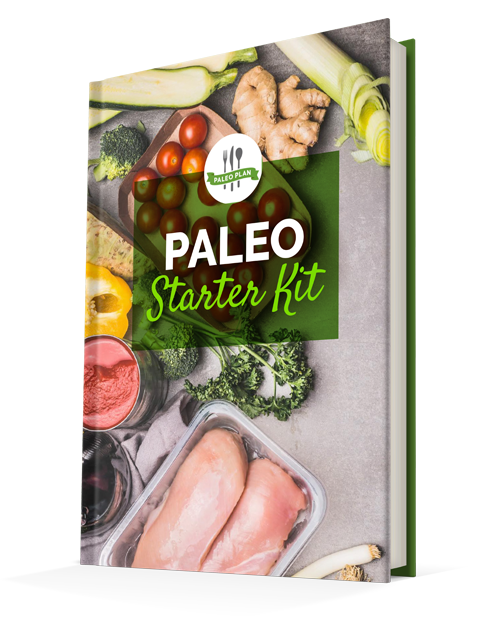
Here’s Dear Paleo Plan,
Are chicharrons (fried pig skins) acceptable for the diet?
And is it ok to use Whey protein shakes to sub for breakfasts
and snacks? I know whey is dairy in origin, but will it harm
the overall effect of the diet??
I am not a fan of the muffins made with almond flour and eggs
every day for breakfast has become hard to stomach- what can
I eat that will be quick, easy and have staying power? Fruit
alone won’t do it.
Are there any *GOOD* baked recipes that can be made with coconut
flour??
Here’s a response from another reader to the first reader’s questions. I don’t agree with some of what she says, although a lot of it is right on. My answer follows.
Hi,
I’m no expert, but what I’ve read about chicharrones is that their high saturated fat and salt content would disqualify them from inclusion on the Paleo Diet.
Whey protein is contraindicated as well, as it is a dairy product – as you already know – and changes the critical acid-base balance in body chemistry. I’ve been using powdered egg white protein instead. Also, remember that you have “free meals” on the Paleo Plan, and you can use anything you like or miss having, so whey protein shakes for “free meals” would be allowed.
I’ve tried substituting coconut flour for almond flour in baked goods recipes, and it usually works well. I also mix in a little unsweetened cocoa powder, and that usually gives baked goods an extra good taste.
My answer:
Hey Guys,
Thanks for writing in. Fried pigskins, if they’re made from pastured pigs and don’t come in a bag from a gas station, are okay. I say okay and not great because they’re fried and frying things at really high heat messes with the integrity of their fatty acids. However, saturated fat is not bad for you. Even Cordain has rescinded his early denouncement of saturated fat. Listen to his interview at Livin’ La Vida Low Carb and you’ll find out that in light of recent research, he’s loosened up a lot on that.
The salt content, on the other hand is debatable. No, most hunter-gatherer groups didn’t eat extra salt, but some did in the form of marsh ashes or dried sea water. There are countless studies indicating that salt has a terrible effect on blood pressure (a risk factor for heart disease) and many other studies that say it has no bearing on blood pressure whatsoever. Even then, the Kitavans, who show no signs of heart disease, have similar blood pressure to Swiss people, whose heart disease rates are much higher. After researching this topic a lot for a recent chapter in the book, I think moderate sea salt intake isn’t detrimental for most of the population. There are certain people whose blood pressure can be more affected by salt, like African Americans and diabetics, but again, having a heart attack isn’t just about having high blood pressure.
Saturated Fat
What about the saturated fat in those fried pig skins? Newsflash. Saturated fat doesn’t cause heart disease. Saturated fat can sometimes cause an increase in LDL cholesterol, but there are different kinds of LDL. The large, fluffy kind, which can be increased with saturated fat consumption, does not get oxidized easily and therefore doesn’t contribute to heart disease. Some saturated fatty acids also increase HDL, the “good” cholesterol, too. What actually causes heart disease is increased inflammation, which is caused by too many omega 6 fatty acids (vegetable oils and grain-fed animal fat) and other non-paleo foods. The grains that feedlot animals eat contribute to omega 6 build up in their bodies (just like they do in ours) and are eaten by us. That’s why Cordain is still a proponent of eating lean animal fats (and trimming visible fat), because he assumes that most people will NOT be eating grass-fed animals. If you’re going to eat grain-fed animals, trim the fat. If you’re going to eat grass-fed, you don’t need to.
Coconut Flour
As for coconut flour recipes, in general just remember to add 6 extra eggs to any recipe that you sub coconut flour into. You can get away with substituting a bit of it here and there. Like in the Carrot Banana Muffins on Paleo Plan, I used 1 cup almond flour, 1/2 cup tapioca flour and 1/2 cup coconut flour instead of 2 cups almond flour and it was amazing. I didn’t add any extra eggs to that mix.
Whey
As for whey, dairy is contentious and I think there’s enough evidence that pasteurized dairy is incredibly low in nutrients and beneficial enzymes (compared with raw dairy). It does also throw off the acid/base balance, but you could say that meat does that, too, and people lived happily on almost exclusively meat for millions of years… You don’t need whey protein if you’re eating meat. And a lot of people become sensitive to the protein drinks they consume because they consume so much of such a processed food. In my opinion, it’s best to keep them to a minimum, and that’s if your digestive and immune systems can even tolerate them. Watch for symptoms when you consume it. I understand it’s a cheap way to get protein, but it’s not a whole, nutrient dense food, which means it’s not really high quality Paleo.
Breakfast
As for breakfasts, eat meat and eggs, vegetables and avocados. I would never suggest that anyone try to eat muffins for breakfast every morning – it’s just not enough fat and protein, even with the almond and coconut flours. I’m busy writing a book right now, so I don’t have much time to cook big breakfasts anymore. It takes me about 10 minutes to cook and clean up after myself when I saute 3 eggs in coconut oil and then add some avocado and smoked salmon/burger/turkey sausage to them. That has staying power.
